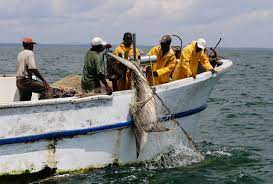Using a contentious financial strategy, Gabon plans to reduce its debt load and restore its waters simultaneously, a key conservation organization said on Tuesday.
The Nature Conservancy, the international environmental group that assisted in brokering the transaction, said in a press statement that it is the second-largest deal of its kind to date and the first on the continent of Africa.
The greatest population of leatherback turtles and many other endangered species are found in the oil-rich country of Gabon in Central Africa, which is also recognized for its biodiversity. TNC predicts that by refinancing $500 million of its foreign debt, Gabon will have $163 million more available to extend its protected coastal regions and fight illegal overfishing.
Lee White, the minister of water, forests, seas, and the environment of Gabon, called it “a really interesting way of slightly reducing our debt repayments and also generating money for conservation.” In order to raise money for conservation, he worked with TNC, Bank of America, and other financial institutions to negotiate lower interest rates on Gabon’s foreign debt.
TNC has successfully executed comparable “blue bond” arrangements in the Seychelles, Belize, and Barbados since 2016. However, despite the fact that donors and host governments promote climate refinancing as a solution that benefits debtor countries, local residents, and the environment, detractors claim that such agreements just scratch the surface of what is required to combat climate change.
The money that is being freed up for conservation is often a tiny fraction of the agreement, despite the fact that it initially appears to be a fantastic deal, according to sustainable finance specialist Frederic Hache.
Only $4.5 million will be directly accessible each year through 2038 of the $163 million TNC claims will go towards ocean conservation activities in Gabon, according to White.
Frankly, that’s a joke, especially for a country like Gabon that is oil-rich, said Hache. According to the World Bank, Gabon’s GDP per capita ranks third highest in sub-Saharan Africa with an average annual income of approximately $9,000.
The remaining $500 million from the TNC sale will be used to pay down Gabon’s recently reorganized debt as well as transaction charges incurred by Bank of America and other parties to the agreement.
The rates will be “competitive and reasonable,” according to Slav Gatchev, director of TNC’s section for sustainable debt.
Even if the agreement worked, Hache added, it would cast doubt on Gabon’s capacity for self-government. Debt-for-nature exchanges have drawn criticism in the past for interfering with the national sovereignty of impoverished countries by giving foreign organizations control over financial and environmental decisions.
White claims that a U.S.-based nonprofit will oversee the new cash for Gabon. “Getting them offshore and limiting the number of government representatives on them is kind of standard practice on these conservation trust funds,” he said.
Blue bonds, according to Gatchev, are the independent product of nations that value the environment, and they represent no threat to national sovereignty. “We don’t instruct governments on what to do… Parliament in Gabon convened and decided on these transactions,” he stated.
Both supporters and opponents of the Gabon agreement concur that in order to combat climate change, countries need to go beyond blue bonds and other forms of conservation funding.
“We don’t claim, not even for a second, that these transactions are a panacea,” Gatchev added.
For the Global North, he said, “This is one small way to at least partially fulfill its funding commitments for climate and conservation.” According to a 2020 Oxfam research, wealthy nations have fallen short of their commitment to provide the $100 billion per year they promised to fight climate change in developing countries during a summit in 2009.
Both proponents and critics of the Gabon accord agree that countries must look beyond blue bonds and other types of conservation money to tackle climate change.
“We don’t claim, not even for a second, that these transactions are a panacea,” Gatchev continued.
He stated that “this is one small way for the Global North to at least partially fulfill its funding commitments for climate and conservation.” A 2020 Oxfam study finds that wealthier countries have not lived up to their promise to provide the $100 billion annually they pledged to address climate change in underdeveloped nations during a summit in 2009.





















